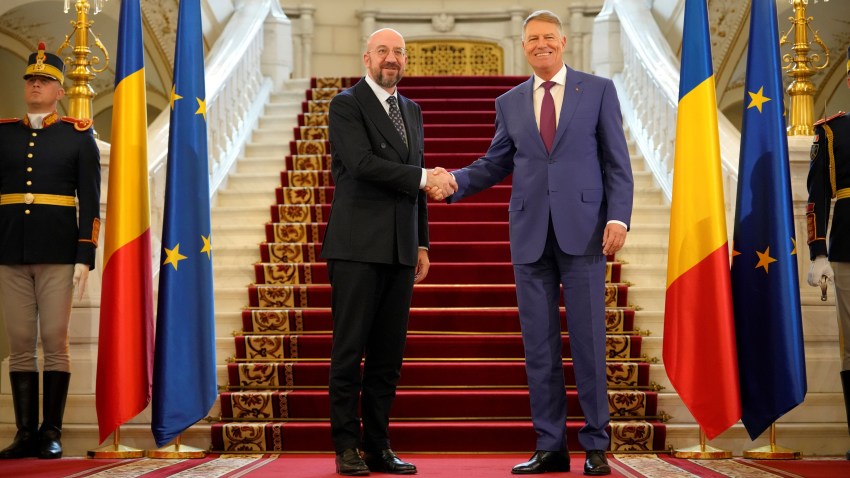As Soviet-backed regimes collapsed across Eastern Europe in 1989, some of the most extraordinary scenes played out in Romania. The speed and violence with which a brutal autocracy fell apart, from the first protests in the town of Temesvar to the trial and execution of toppled dictator Nicolae Ceausescu several weeks later, ushered in dizzying changes that many Romanians struggled to absorb. With Romania’s post-communist social order initially scarred by widespread poverty and corruption, many observers in the 1990s expressed doubts as to whether Romanians would ever achieve the democratic stability needed to join the European Union.
In those first years after Ceausescu’s fall, the so-called Mineriad attacks against protesters demanding reform, carried out by miners under the influence of corrupt powerbrokers, raised concerns that Romania could experience the same downward spiral that fueled civil war in Yugoslavia. The emergence of far-right movements stoking resentment against ethnic Hungarian minority communities increased the risk of tensions with Hungary that had the potential to destabilize the wider region. Though a new government attempted to pursue more systematic reforms after 1996, its collapse a few years later was taken by many within the EU as an indication that Romania might never achieve the stability that the union’s accession process is designed to encourage.
Yet throughout this turmoil, Romanian governments remained committed to achieving EU membership. The huge wave of outward migration driven by Romania’s endemic poverty in the 1990s exposed many Romanians to the stark contrast between conditions in their own society and the prosperity of EU member states. And the prospect of access to freedom of movement across European borders enjoyed by EU citizens increased pressure on the country’s venal political elites to at least sustain a facade of reform.

